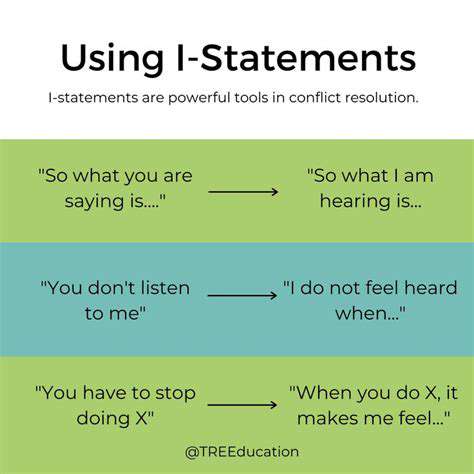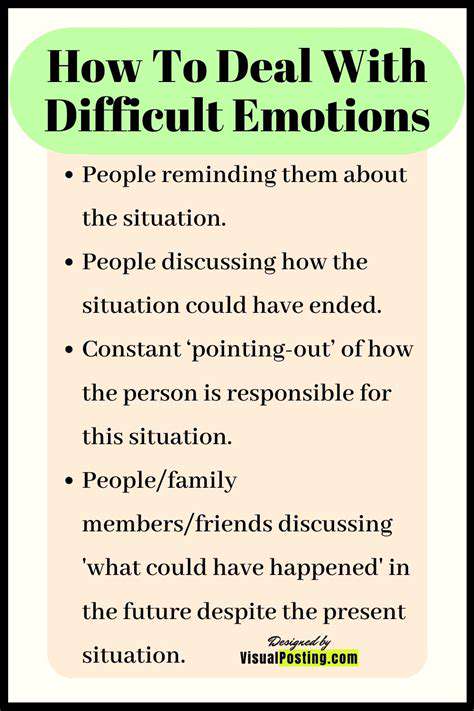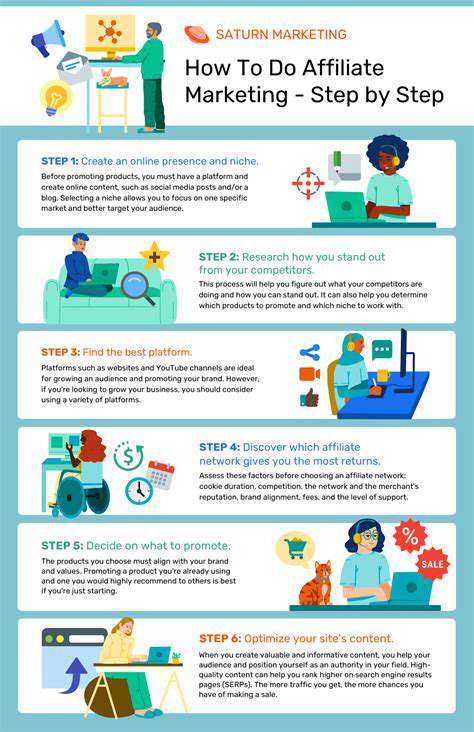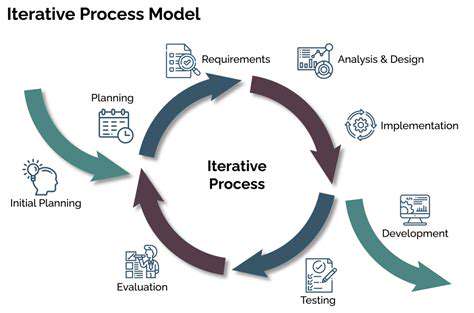How to Handle Difficult Conversations at Work
Understanding the Importance of Preparation
Let's face it - no meaningful dialogue happens by accident. Whether you're discussing quarterly reports or relationship boundaries, the magic happens when preparation meets opportunity. That effective communication you've been chasing? It starts long before the first word leaves your mouth. I've seen too many well-intentioned discussions derail because someone skipped this crucial step.
Identifying the Key Players and Their Perspectives
Remember that time your colleague completely misinterpreted your suggestion? That's why we need to put on our detective hats. People don't just say words - they bring entire histories to every conversation. That quiet team member might be holding back because of last year's failed project, while the vocal one could be overcompensating for insecurities. Peel back the layers.
Defining Clear Objectives and Desired Outcomes
Here's a hard truth: If you don't know where you're going, you'll definitely get lost. I once sat through a two-hour strategy meeting that ended with everyone more confused than when we started. Write down your goals like you're giving GPS coordinates - Improve team communication is vague; Establish weekly 15-minute check-ins actually gets you somewhere.
Gathering Relevant Information and Data
Numbers don't lie, but they need context. That 30% drop in productivity? Could be bad management... or maybe the AC was broken during a heatwave. Facts are your armor in tough conversations, but remember - data tells a story, and you need all the chapters.
Developing a Communication Strategy
Ever received an angry email that should've been a calm face-to-face? Exactly. Your medium changes your message as much as your words do. The right strategy feels like tailoring a suit - what fits a boardroom chokes in a coffee chat. And practice? That's not just for presentations - even difficult conversations deserve a dress rehearsal.
Anticipating Potential Objections and Counterarguments
Here's where chess players have the edge. Every move invites a response - are you thinking three steps ahead? When Sarah questions the new policy, will you defend or explore her concerns? Preparation isn't about scripting - it's about having tools for the unexpected.
Creating a Safe and Respectful Environment
Psychological safety isn't corporate jargon - it's the oxygen of good dialogue. I'll never forget the manager who started meetings with What's one non-work win you had this week? That simple ritual built more trust than any policy manual ever could. The space you create determines what can grow there.
Creating a Safe and Respectful Environment
Establishing Ground Rules
Remember grade school when the teacher wrote rules on the board? There was wisdom there. Explicit agreements prevent implicit frustrations. One team I worked with had a no devices rule that cut meeting times in half. Another used a talking stick (yes, literally) to prevent interruptions. What works for your tribe?
Active Listening and Empathy
Here's a test: Next conversation, count how often you're mentally rehearsing your response instead of hearing them. Real listening feels like detective work - you're hunting for clues between the words. That pause after I'm fine? The way their voice tightens on certain topics? That's where the gold is.
Managing Emotions
Emotions are like weather - you can't control them, but you can prepare. The 5-5-5 rule changed my life: Will this matter in 5 days? 5 months? 5 years? That looming deadline feels apocalyptic... until you realize it's just next Tuesday's problem.
Setting a Positive Tone
Tone is the secret sauce. I once saw a manager transform a tense meeting by starting with How can we solve this together? instead of Whose fault is this? Your first three words set the gravitational pull for the entire conversation. Choose them like you're choosing the flavor for a shared meal.
Focusing on Solutions
Blaming is like rocking in a chair - feels like work but gets you nowhere. The most productive teams treat problems like escape rooms - the challenge is fun because everyone's working the puzzle together. That project failure? It's not a crime scene - it's a case study waiting to happen.
Communicating Effectively: Using I Statements and Active Listening

Building Rapport
Real connection starts before the agenda. That coffee chat about weekend plans? It's not small talk - it's social infrastructure. Like a gardener preparing soil, these moments make the important conversations possible. One CTO I know keeps a personal notes file on every team member - not creepy, just caring.
Clarity and Conciseness
Ever played telephone as a kid? That's your email chain without clarity. Pretend you're explaining to a smart twelve-year-old - if they'd get it, anyone will. My favorite trick? The Twitter test - if you can't say it in 280 characters, you haven't distilled it enough.
Choosing the Right Medium
Breakup by text. Promotion by email. Some messages demand the right vehicle. The more emotional the content, the more bandwidth you need. That tricky feedback? If your heart rate increases while typing, maybe pick up the phone.
Nonverbal Communication
Your body speaks volumes before you do. That crossed-arm I'm listening you're doing? It's saying I'm closed instead. One executive I coached recorded herself in meetings - the gap between her words and expressions was startling.
Adaptability and Feedback
Communication styles are like dance - you can't lead if you only know one step. The best communicators code-switch without losing authenticity. That analytical team member needs data, while the creative one wants the big picture. Speak their language, not yours.
Handling Difficult Emotions and Feedback: Strategies for Staying Professional

Understanding the Nature of Difficult Emotions
Emotions are data, not directives. That anger flooding your system? It's an ancient alarm system saying Something here matters. I once saw a CEO transform meetings by asking What's the emotion behind that objection? Suddenly, budget concerns revealed deeper values.
Identifying Your Triggers
We all have our kryptonite. Mine? Being interrupted. Knowing your triggers is like having an emotional first aid kit - you can reach for solutions before the bleed-out. That colleague who always plays devil's advocate? Now you're ready when they start.
Developing Healthy Coping Mechanisms
Stress balls are cute, but real coping looks different. The most effective professionals have go-to resets - a walk around the block, three deep breaths, even silent counting to ten. One lawyer I know keeps a calm playlist for tough moments. What's in your toolkit?
Practicing Self-Compassion
Would you talk to your best friend the way you talk to yourself? Professionalism includes being professional with yourself. That presentation stumble doesn't define you - it's just one moment in a long career. Treat yourself like you would a valued colleague.
Seeking Support When Needed
Vulnerability is strength in disguise. The best leaders I know have trusted sounding boards - mentors, therapists, even peer groups. That I've got this attitude? Sometimes it's just pride in a costume. Real power knows when to ask for help.








![Best Smart Vacuum Cleaners [2025 Review]](/static/images/31/2025-05/SmartFeaturesandConnectivity3AStreamliningYourCleaningRoutine.jpg)


